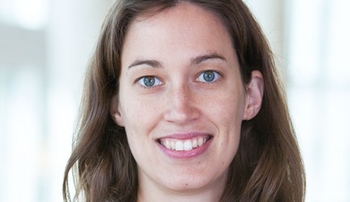Cue the Willie Nelson song.
Julie Oestreich, Pharm.D., Ph.D., assistant professor of pharmacy practice in the College of Pharmacy, is in the midst of an investigation, much of which was conducted not in the lab, but on the road.
 |
Julie Oestreich, Pharm.D., Ph.D. |
But that — being out there — is part of the journey.
Collaborating with local entities
Dr. Oestreich researches personalized anti-platelet therapy (which medicines, and how much, work best) and genetic tests for risk factors for cardiovascular events among the area’s American Indian population.
The UNMC team collaborates with Lyle Best, M.D., and Turtle Mountain Community College at Belcourt, N.D. Both entities also work with Missouri Breaks Industries Research, Inc., which is Indian-owned and has offices on both the Pine Ridge and Cheyenne River Sioux Reservations in South Dakota.
The project goes through not just UNMC’s Institutional Review Board (IRB) but one with the tribe itself, and one with the Aberdeen Area Indian Health Service.
No helicopter research
Dr. Oestreich previously had been interested in the variability of platelet function and response to antiplatelet agents with regard to protecting people from adverse cardiovascular events. She was intrigued by the idea that ethnicity might be one factor in this variability.
But Jennifer Larsen, M.D., vice chancellor for research, and others encouraged Dr. Oestreich to find an underrepresented community with a high incidence of these events, and then make the effort to meet the people and accommodate their needs.
Dr. Oestreich got the message: “You should not be a helicopter researcher, and just drop in and move on,” she said. “You need the communication base and the support system. I’m still learning a lot and trying to do it the right way.”
Get out there
It turns out that the best studies with research participants involve not just science but also trust. Relationships matter. Cultural competency matters.
UNMC’s collaborators on this case know the people and the area. They’ve long known what Dr. Oestreich is learning now: Sometimes, there’s no substitute for getting out there.